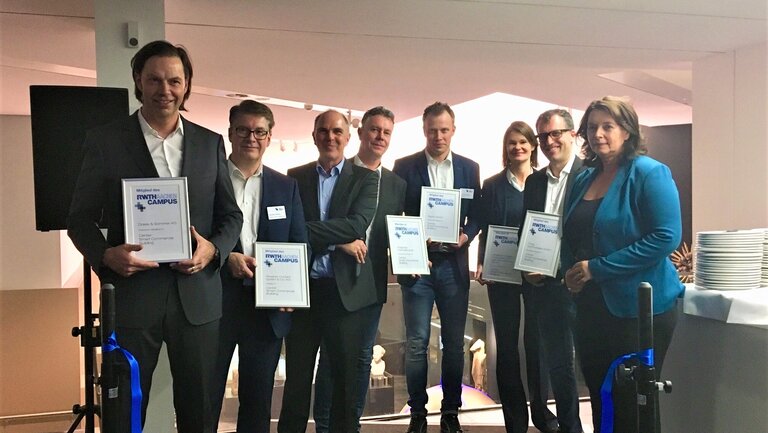The campus of RWTH Aachen University, which has become known as Engineering Valley, is seen throughout Germany as a unique hub for business, science and young entrepreneurs, where commercial smart buildings can be developed and IT security issues thoroughly tested. The symposium brought together investors, real estate developers and owners, international IT companies and proptech companies – young entrepreneurs with fresh ideas for the real estate sector.
Digitalization Within Reach
Why Drees & Sommer sees its location in Aachen as far more than a local office, was explained by Executive Board member Steffen Szeidl: ‘We have had an innovation hub in Aachen for several years. As in our other innovation laboratories, the center in Aachen is dedicated to a specific subject. At the Aachen hub, we and our industry and research partners develop and test intelligent buildings, among other things.’
Drees & Sommer also has other innovation hubs in Basel focusing on building information modeling (BIM). In Berlin new office concepts provide the focus of the work, while the Eindhoven hub deals with sustainability issues, the Cradle to Cradle principle, and recyclable construction materials. At the headquarters in Stuttgart there is the DS HUB building, a former bookbinding business now modernized and incorporating co-working space into which the Drees & Sommer Executive Board has moved. Steffen Szeidl explained: ‘At the DS HUB we carry out research, mostly into business models. We are currently collaborating with more than 25 different startups on this. We see ourselves mainly as interpreters between the old and new worlds.’
Yesterday We Operated Alone, But Today We Gain Strength In Partnership
With their innovative technologies, it is mainly startups that are increasing the pressure on the old world – the long-established real estate companies. This makes exchanging ideas and information with young entrepreneurs very important. This was demonstrated at the symposium by the lively interest shown by the well-established real estate companies in the new solutions for the sector presented by the proptech companies – including Ampido GmbH, BitStone Capital, Disruptive Technologies Research AS, enlighted, formitas GmbH, LCM Digital, MeteoViva GmbH, NavVis, m-hoch3 GmbH, Pinestack GmbH, Signify, S O NAH UG, Thing-it Technologies, and wtec GmbH.
For Marco Hofmann, Head of LoB Real Estate at SAP SE, the issue is also obvious: ‘Bringing innovations onto the market quickly while meeting users’ most exacting requirements is something that only a few companies can do alone. Strategic innovation partners are therefore becoming increasingly important. Startups can contribute to a rethinking of business models, and their ideas can give a boost to established companies.’
Digitalization is not an End in Itself – It Has to Serve People
Thomas Simon, CEO of IT consulting firm ComConsult, discussed the importance of also dealing with security issues: ‘It is no longer possible to build a house with just bricks and mortar. Instead, what is important for investors is to assess the future use of buildings and develop a digitalization strategy that takes into account user requirements. However, since a digitalized building is constantly collecting and processing digital data, high standards of data security are essential. The separation of networks and the use of firewalls and proper operating systems are all steps in the right direction.’
Steffen Szeidl summed up where Drees & Sommer’s focus lies in the matter of digital transformation: ‘Taking a thoroughly user-centered approach; seeing new technologies as opportunities; entering into real collaborations with research companies, startups, and our clients and business partners; and focusing our thinking about digitalization entirely on people’s needs.’
